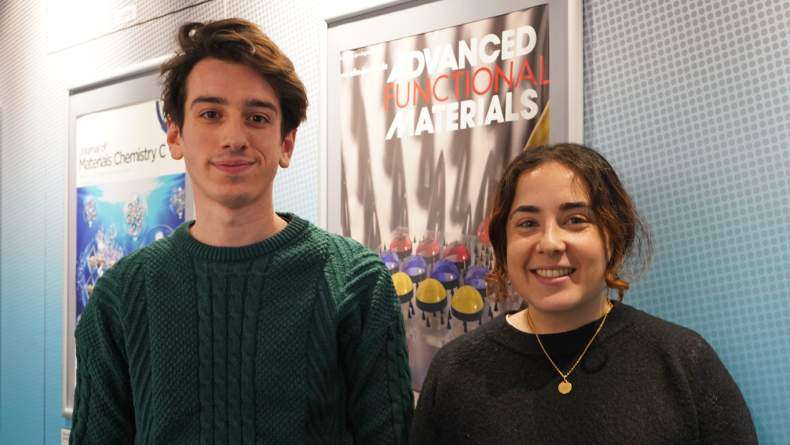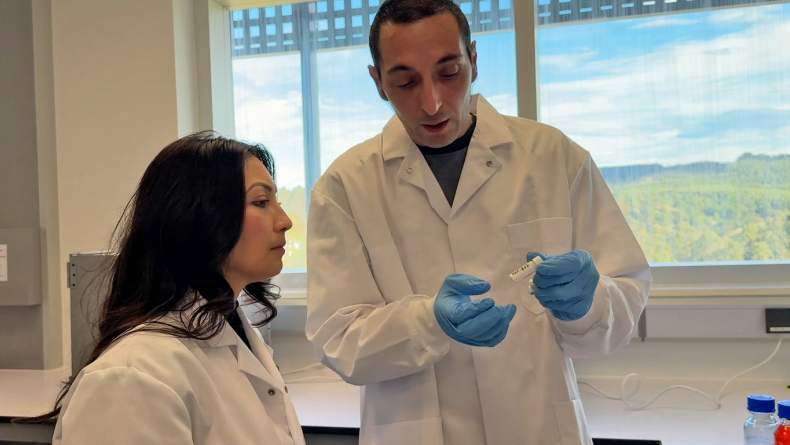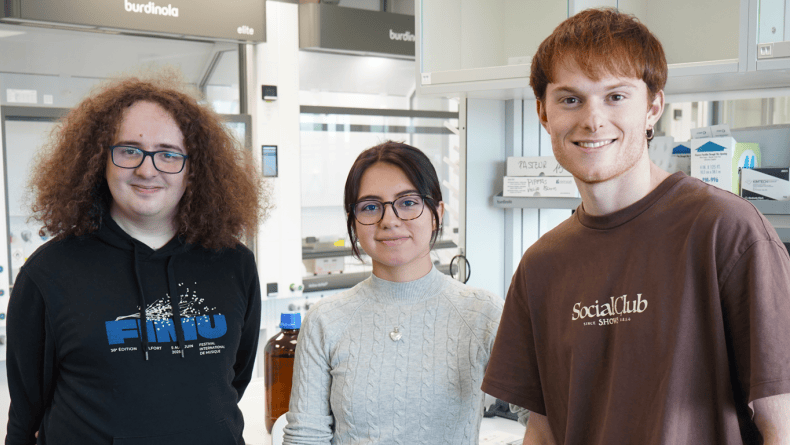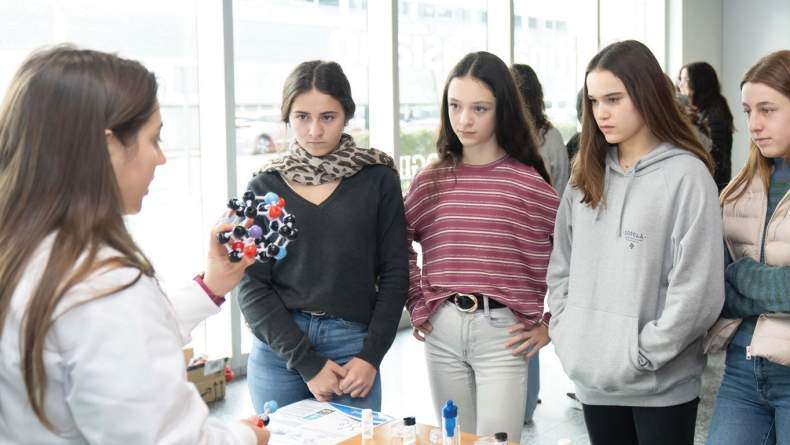Fortnightly seminar online: The effect of dopping in MSMAs by Natalia Río & Development of corrosion detectors and smart coatings for self-healing of corrosion damage by Adriana Gallardo

The effect of dopping in MSMAs by Natalia Río:
Magnetic shape memory alloys (MSMAs) are an interesting class of smart materials characterized by undergoing macroscopic deformations when a pertinent stimulus is applied: temperature, stress and/or external magnetic fields. Since the deformation is rapid and contactless, this kind of materials are being extensively investigated for a wide range of applications, among which sensors and actuators outstand. The applications in which they can be used are extremely dependent on the material properties, which are, in turn, greatly conditioned by the structure, atomic ordering and magnetism of the MSMAs. The aim of this talk is to discuss how the addition of doping elements (Fe, Co, Cu, In) and different thermal treatments (quenching, annealing) affect key properties (transition temperatures, magnetization saturation) of MSMAs. In particular, the properties of Ni-Mn-Ga-Co-In alloys undergoing quenching and slow cooling thermal treatments, as well as their doping with different Fe contents, will be discussed.
Development of corrosion detectors and smart coatings for self-healing of corrosion damage by Adriana Gallardo:
Corrosion is a natural electrochemical phenomenon that causes the continuous loss of metallic materials and severely threatens the structural security, life safety, environmental protection and economic development. In order to prevent corrosion damage, the application of smart coatings is one of the most used strategies. A smart coating is able to repair damaged parts by recovering barrier properties before metallic corrosion occurs or contain inhibitors that are released ‘‘on demand” when corrosion occurs. For this reason, it is highly desired to detect metal corrosion at early stages and timely make maintenance before materials suffer serious corrosion and degradation. In this seminar, I will talk about corrosion sensing compounds and the mechanism of corrosion detection. The most typical corrosion sensors include colour change or fluorescent indicators that are included in the polymeric matrix. I will briefly explain the use of self-healing coatings in this area. I will also show the initial results upon the use of YAG:Ce particles in corrosion sensing and future perspectives of my work.
The seminar will be online due to COVID restrictions.
https://teams.microsoft.com/l/meetup-join/19%3ameeting_Y2Y1YThjMzctNzg5YS00MThmLWI1MWQtNDNkYjQ5ZWQ2Zjgz%40thread.v2/0?context=%7b%22Tid%22%3a%222f54ab68-83af-4d70-8895-a0d1e95ec899%22%2c%22Oid%22%3a%22be6b543c-6fb5-479c-a18a-873811ce9240%22%2c%22IsBroadcastMeeting%22%3atrue%7d&btype=a&role=a
Related news
Sara Martín y Stefano Lunghi, nuevos investigadores de BCMaterials
Desde BCMaterials damos la bienvenida a dos nuevas personas que integran nuestro personal investigador. Se trata de Sara Martín Iglesias, investigadora post-doctoral en la línea de Materiales Activod...Nanomateriales para la descontaminación y valorización de aguas
Personal científico de BCMaterials desarrolla nanomateriales de última generación, combinados con membranas poliméricas de origen natural, destinados a la descontaminación y revalorización de aguas....Tres nuevos investigadores se incorporan a BCMaterials
El nuevo año ha traído a BCMaterials la incorporación de tres nuevos jóvenes científicos a su equipo. Se trata de los investigadores predoctorales Karen Cano y Mikel Russo y el investigador...Actividades de BCMaterials en Emakumeak Zientzian
Este año se cumple el 10º aniversario del comienzo de la iniciativa Emakumeak Zientzian, que reúne a más de 30 entidades vascas organizadoras de actividades de divulgación científica con motivo de la...



